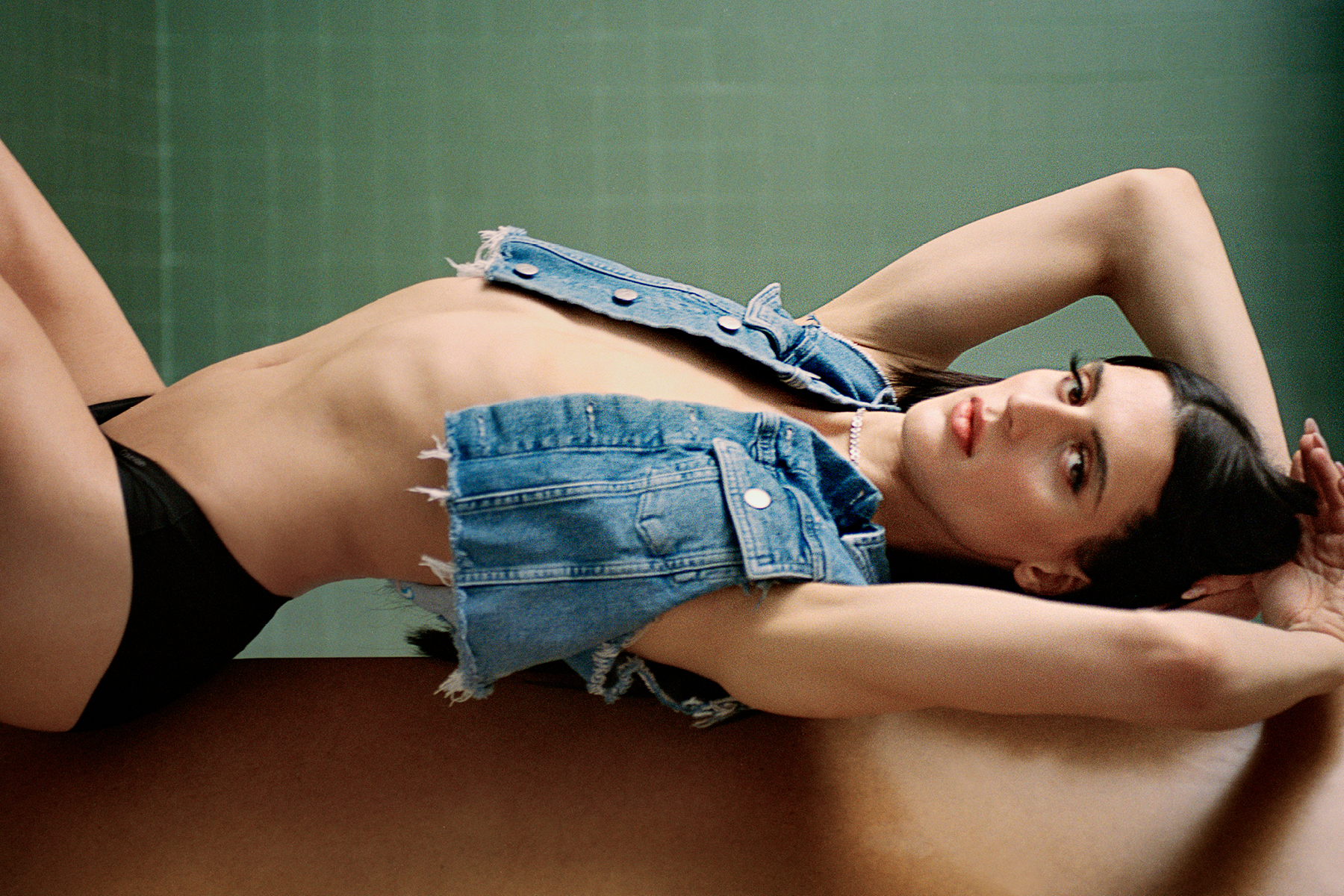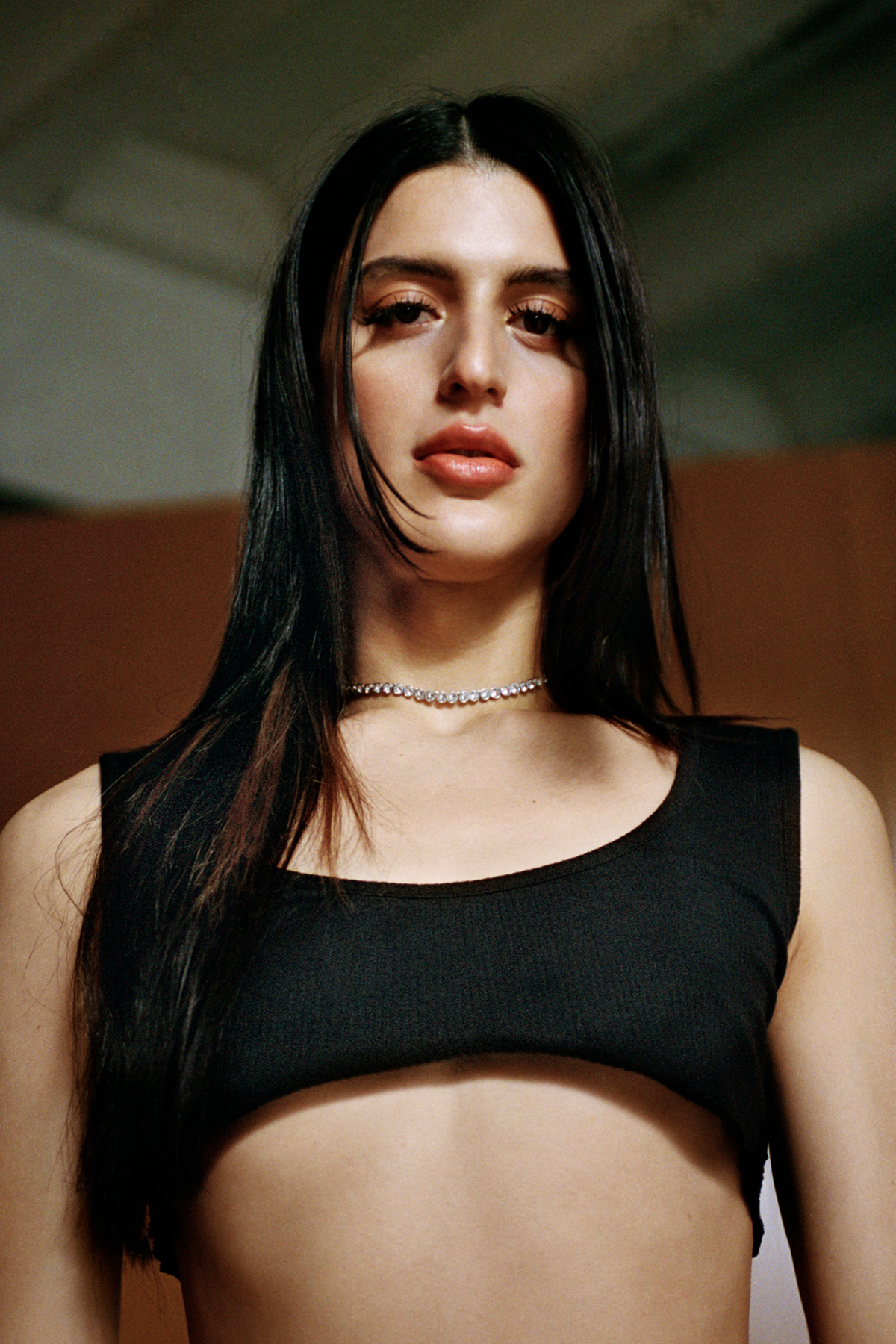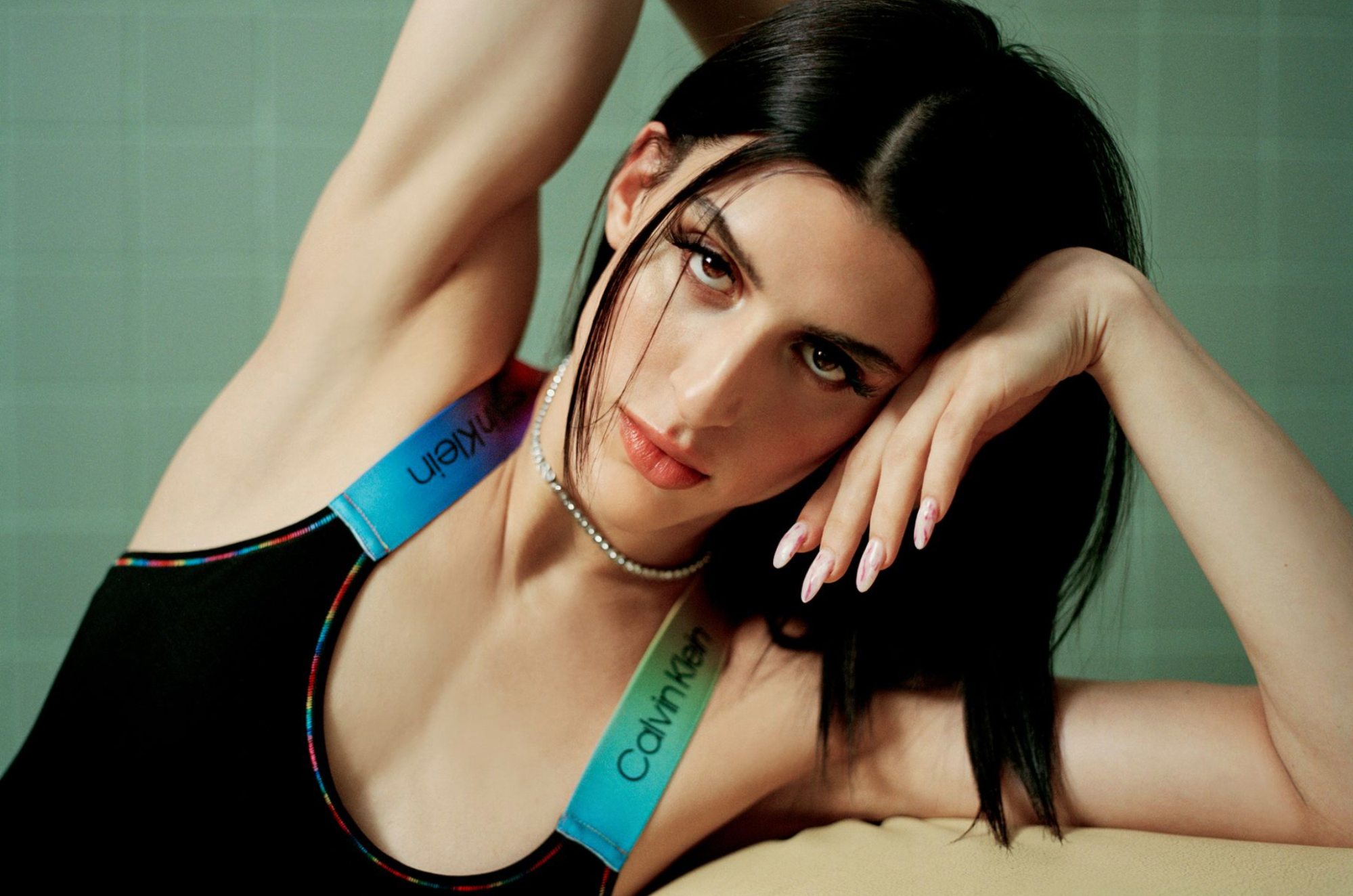In Calvin Klein’s 2021 #proudinmycalvins campaign, musician and two-time i-D cover star Arca shares her story of the first time she gave herself permission to cruise. If you’re not one to indulge yourself, that may sound like a shocking thing to hear from such a prominent public figure. Cruising, we’ve so often been told, is a sordid act — furtive fumbles that take place on the shadow sides of places you pass by everyday. If you speak to many people who partake in it, though, you’ll learn that what draws them to pursue impulsive interactions in city parks, train station bathrooms and saunas often has little to do with the red-lit sleaze of the Al Pacino-starring 1980 film. Rather, cruising constitutes an act of self-realisation, of connection, of empowerment; an act of finding and affirming one’s right to the space we take up in the world.
A wave of similar feelings came over Arca when, on a day like any other during a muggy New York summer, she allowed instinct to guide her on crossing paths with a handsome stranger in a subway station. 12 years on from then, at the start of this year’s Pride month, we see her reminisce on that moment of personal awakening in a short film shot for this year’s #proudinmycalvins campaign.

Inviting eight queer cultural leaders of our time — including Honey Dijon, Raisa Flowers and Samuel de Saboia — to share a defining moment in their queer journeys, the #proudinmycalvins campaign is more than your typical fashion advertising campaign. It’s both an affirmation of the power of our individual experiences, and the common ground and sense of community we discover when we share them.
This ethos is directly reflected in the actions that Calvin Klein is taking parallel to the #proudinmycalvins campaign, partnering with non-profit organisations that support “the advocacy, equality and safety of LGBTQIA+ communities worldwide”, a release reads. This includes a two-year partnership with The Trevor Project (the world’s largest suicide prevention and crisis centre for LGBTQIA+ young people), as well as support for organisations including ILGA World, the Transgender Legal Defense and Education Fund, the National Pulse Memorial & Museum (a nonprofit established by the owner of the Pulse nightclub following the June 12, 2016 shooting in Orlando, Florida) and BlaQ Aboriginal Corporation in Australia.
Below, Arca shares the story behind her first cruising experience, the sense of agency it awoke in her, and what pride means to her today.
Could you set the scene in which your defining moment took place?
With pleasure! It was a moment where I gave myself permission to do something that, during my whole upbringing, I was told was something that one shouldn’t do; which was, in my case, to reach out and connect with someone I was attracted to. It was very spontaneous. I was in New York City, Union Square subway station. It was a day like any other, except that I had just finished reading the biography of Arthur Russell. I was flooded with bravery, I guess, and this guy who I thought was really hot was looking at me. On any other day, I’d have looked away, but on that day I just felt braver. So I just walked up to him and said ‘hey’. In hindsight, it was very pure. It was very exhilarating but very natural at the same time.
What feelings does revisiting that moment bring up for you today?
Gratitude. And a little bit of anger, because I hate that it has to be that way, that it’s a revelation to be able to take a risk and reach out to the world like that. In that sense, it’s a full rainbow of emotions. I wouldn’t want to narrow it down. There’s joy, a little bit of melancholy, a little bit of aggravation… It’s a spectrum.
How did that moment shape your relationship with yourself, and how you’ve moved through the world since?
It gave me a sense of agency. It made me believe in free will more, even if that is a very deep philosophical debate. And it made me feel pride. I felt proud that I gave myself permission to do that, and it gave me confidence. When I think about that moment, I feel uplifted.
As much as it is centred on the pursuit of physical connection and pleasure, cruising has often been discussed as a political act — an act of queering urban space. How do you relate to this idea?
I think it’s a life impulse. You know, Freud used to talk about the death impulse and the life impulse. Libido is the act of making a connection with the world, and destrudo is the yin to the yang of libido. It’s wanting to destroy. You can observe this in cell reproduction, too — there’s the anabolic state in which new cells are created, and connections are forged between cells. And then there’s the catabolic state, which is a rupture with, say, muscle tissue, which then allows for regeneration.
The act of cruising, for me, somehow contains both. It’s the life impulse, and yet it’s a transgression; it’s a very profound subject. So that said, I do believe it’s political, but only to the extent to which I think that the personal is political. I don’t think it’s necessarily an intellectual thing — if anything, I think it’s the opposite. It’s very primal, and there’s a hedonism to it. At the same time, one might be more inclined to see it as a release of psychic pressure and a connection, rather than an act of disobedience in the face of authority.

You mentioned that the specific moment you discussed made you feel a sense of pride. What does the term mean to you?
It’s hard to talk about pride without talking about shame. I think it can often be seen as arrogance, or a way to build a bubble that’s exclusionary, which is exactly the thing that one wants to try to avoid if you’re reaching out to the world. You don’t want to end up alienated to the point where your pride is a defence mechanism. It’s actually supposed to have you reach a baseline of self-esteem, right? But it’s a slippery slope. And that’s why I often think about the idea of pride in the same way that I think about indulgence being tied to a sense of having been deprived of something. It seems more sensible to consider pride and shame, and indulgence and deprivation, as existing on a spectrum. Each thing then gives the other more meaning.
So what gives you the greatest sense of pride?
Raving with a community of queer people makes me feel proud. It’s those moments of not having to think about responsibilities. It’s more of a sensation than an idea, I would say that gives me pride. It’s about just letting yourself feel sexy no matter what your configuration or relationship to the mind, body or other is. That’s really the best and most beautiful thing for me about pride. It doesn’t matter how you identify — pride is about giving yourself permission to feel sexy.
And do the clothes you’re wearing in the #proudinmycalvins campaign accentuate that feeling?
Yes! I was screaming because I never wear denim jackets. I would say that this campaign taught me to feel sexy in things that I would never wear, which was very fun.
What do you hope the people reading this are able to take away from your #proudinmycalvins campaign?
That if I can do it, they can, too.

